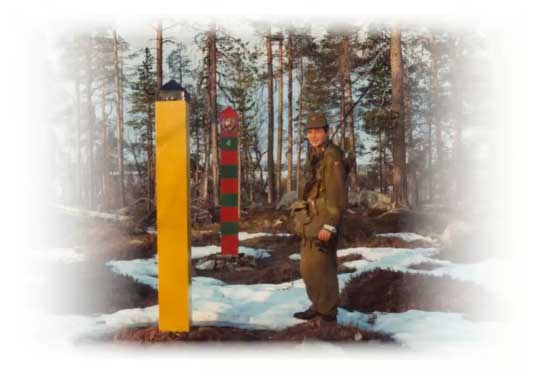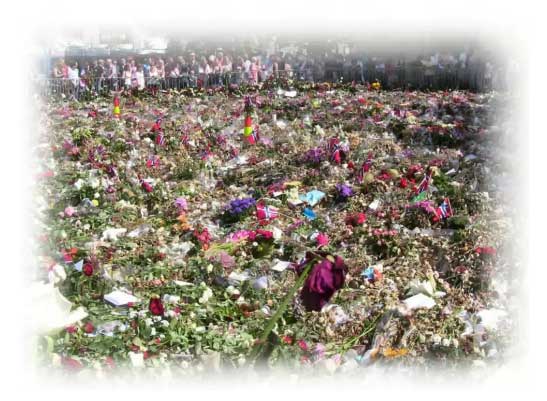Climate Change, Free Speech And Academic Freedom
By Rasmus E. Benestad
14 February, 2012
Realclimate.org
In a recent interview for a Norwegian magazine (Teknisk Ukeblad, 0412), the IPCC chair Rajendra Kumar Pachauri told the journalist that he had received death threats in connection with his role as a head for the IPCC. There have also been recent reports of threats and harrasment of climate scientists for their stance on climate change (Kerry Emanuel, Katherine Hayhoe, Australian climate scientists, Phil Jones, Barton campaign, and Inhofer’s black list).
These incidents appear as an unpleasant deja vu from my past, smacking of attempts to suppress the freedom of speech. They remind me of the days when I did my national service as a border patrol at the Soviet-Norwegian border in 1988-1989 (Norway and Russia – then Soviet – share a 196 km long common border in the high north), where we stood up for our freedom and democracy. Freedom of speech was tacitly implied as one of the ingredients of an open democracy, which in our minds was the West. There was an understanding that the other side of the iron curtain represented an oppressive regime.
If the people who threat and harass climate scientists were to have their way, I fear we would be heading for a world resembling the other side of the iron curtain of 1989. The absence of oppression and harrasment is a prerequisite for sound and functioning science. Oppressive regimes are not known for producing good science, and blind ideology have often been unsustainable. Therefore, threats and such dishonerable campaigns represent a concern.

Me at the Soviet-Norwegian border in the spring of 1989, where I served as a border patrol. The border was halfway between the yellow Norwegian and green/red Soviet borderposts seen in the photo, and the iron curtain involved a militarised zone on the Soviet side guarded by the KGB.
Another unpleasant aspect of the direction taken by the public discource is the character of the rhetorics, which too exhibit similarities to that of the cold war. I still remember some of the propaganda that could be heard on the radio – translated to Norwegian. Too often these days, the debate is far from being informative but has turned into something like a beauty contest and he-said-she-said affair.
So it is important to keep in mind: Don’t shoot the messenger who is only doing her/his job. It would really be a disservice to the society. Any open and free democracy has to be based on true information and knowledge. When big and powerful media corporations start to look like past state-run propaganda machines, where slogans have replaced common sense and expert knowledge, then we’re heading in the wrong direction.
In Norway, the there were calls for enhanced openness and respect (by our prime minister) after the terrible July 22 (2011) terrorist attacks (the terrorist also disrespected climate science). In this sense, the opennes also means exposing all levels and all aspects of matters being disputed. As in sciences, it is important to elucidate the situation, and see if the arguments stand up to being critically scrutinized. This also means that all relevant information must be included – not just those which support one stand.

Flower response, more democracy, and more openness in Oslo after July 22, 2011.
I think that the science community needs a louder voice in the society, and there is a need for bringing some of the science-related debates closer to true science. We need to explain the virtues of the scientific method, such as transparency, replication of past results, testing and evaluating the methods and conclusions. These virtues lead to the most credible answers.
For example, we need to focus on question like the following: Is the strategy adopted objective? Does it give robust results? Or do the result depend on the context in which the analysis was carried out? In other words, we need to question whether the conclusions are generally valid.
Focusing on the real questions and doing science means being free, critical and sceptical – and not a climate of fear.
Rasmus E. Benestad is a physicist by training and have affiliations with the Norwegian Meteorological Institute (met.no) and the Oslo Climate Group (OCG) . He has a D.Phil in physics from Atmospheric, Oceanic & Planetary Physics at Oxford University in the United Kingdom. He is the author of the book ‘Solar Activity and Earth’s Climate’ (2002), published by Praxis-Springer, and he was a member of the council of the European Meteorological Society for the period (2004-2006), representing the Nordic countries and the Norwegian Meteorology Society. Views here are personal and may not necessarily represent those of RegClim, OCG, met.no, or the mentioned societies
e-mail: rasmus.benestad-at-met.no
Comments are not moderated. Please be responsible and civil in your postings and stay within the topic discussed in the article too. If you find inappropriate comments, just Flag (Report) them and they will move into moderation que.


